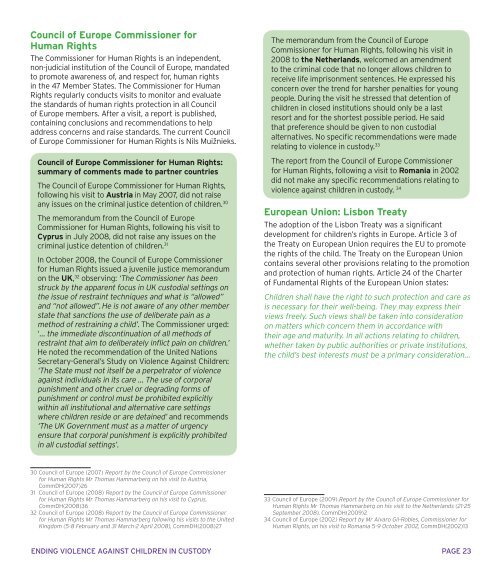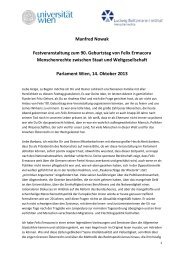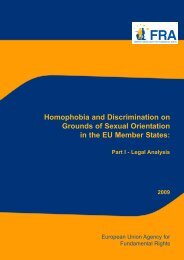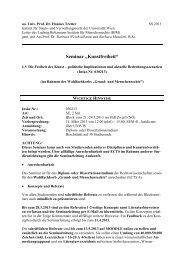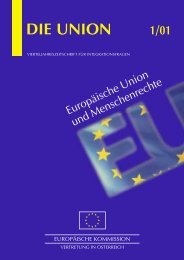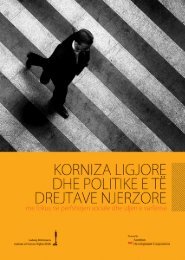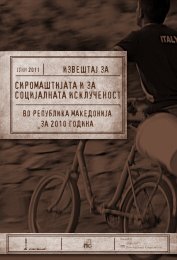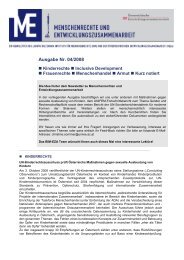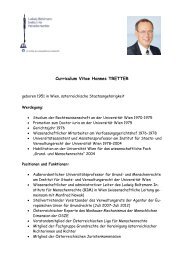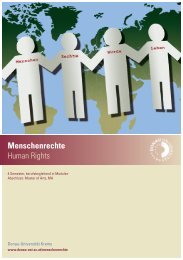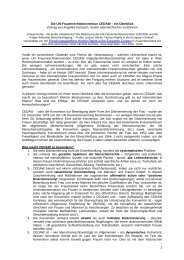speaking freely - 404 Page not found
speaking freely - 404 Page not found
speaking freely - 404 Page not found
You also want an ePaper? Increase the reach of your titles
YUMPU automatically turns print PDFs into web optimized ePapers that Google loves.
Council of Europe Commissioner for<br />
Human Rights<br />
The Commissioner for Human Rights is an independent,<br />
non-judicial institution of the Council of Europe, mandated<br />
to promote awareness of, and respect for, human rights<br />
in the 47 Member States. The Commissioner for Human<br />
Rights regularly conducts visits to monitor and evaluate<br />
the standards of human rights protection in all Council<br />
of Europe members. After a visit, a report is published,<br />
containing conclusions and recommendations to help<br />
address concerns and raise standards. The current Council<br />
of Europe Commissioner for Human Rights is Nils Muižnieks.<br />
Council of Europe Commissioner for Human Rights:<br />
summary of comments made to partner countries<br />
The Council of Europe Commissioner for Human Rights,<br />
following his visit to Austria in May 2007, did <strong>not</strong> raise<br />
any issues on the criminal justice detention of children. 30<br />
The memorandum from the Council of Europe<br />
Commissioner for Human Rights, following his visit to<br />
Cyprus in July 2008, did <strong>not</strong> raise any issues on the<br />
criminal justice detention of children. 31<br />
In October 2008, the Council of Europe Commissioner<br />
for Human Rights issued a juvenile justice memorandum<br />
on the UK, 32 observing: ‘The Commissioner has been<br />
struck by the apparent focus in UK custodial settings on<br />
the issue of restraint techniques and what is “allowed”<br />
and “<strong>not</strong> allowed”. He is <strong>not</strong> aware of any other member<br />
state that sanctions the use of deliberate pain as a<br />
method of restraining a child’. The Commissioner urged:<br />
‘… the immediate discontinuation of all methods of<br />
restraint that aim to deliberately inflict pain on children.’<br />
He <strong>not</strong>ed the recommendation of the United Nations<br />
Secretary-General’s Study on Violence Against Children:<br />
‘The State must <strong>not</strong> itself be a perpetrator of violence<br />
against individuals in its care … The use of corporal<br />
punishment and other cruel or degrading forms of<br />
punishment or control must be prohibited explicitly<br />
within all institutional and alternative care settings<br />
where children reside or are detained’ and recommends<br />
‘The UK Government must as a matter of urgency<br />
ensure that corporal punishment is explicitly prohibited<br />
in all custodial settings’.<br />
The memorandum from the Council of Europe<br />
Commissioner for Human Rights, following his visit in<br />
2008 to the Netherlands, welcomed an amendment<br />
to the criminal code that no longer allows children to<br />
receive life imprisonment sentences. He expressed his<br />
concern over the trend for harsher penalties for young<br />
people. During the visit he stressed that detention of<br />
children in closed institutions should only be a last<br />
resort and for the shortest possible period. He said<br />
that preference should be given to non custodial<br />
alternatives. No specific recommendations were made<br />
relating to violence in custody. 33<br />
The report from the Council of Europe Commissioner<br />
for Human Rights, following a visit to Romania in 2002<br />
did <strong>not</strong> make any specific recommendations relating to<br />
violence against children in custody. 34<br />
European Union: Lisbon Treaty<br />
The adoption of the Lisbon Treaty was a significant<br />
development for children’s rights in Europe. Article 3 of<br />
the Treaty on European Union requires the EU to promote<br />
the rights of the child. The Treaty on the European Union<br />
contains several other provisions relating to the promotion<br />
and protection of human rights. Article 24 of the Charter<br />
of Fundamental Rights of the European Union states:<br />
Children shall have the right to such protection and care as<br />
is necessary for their well-being. They may express their<br />
views <strong>freely</strong>. Such views shall be taken into consideration<br />
on matters which concern them in accordance with<br />
their age and maturity. In all actions relating to children,<br />
whether taken by public authorities or private institutions,<br />
the child’s best interests must be a primary consideration…<br />
30 Council of Europe (2007) Report by the Council of Europe Commissioner<br />
for Human Rights Mr Thomas Hammarberg on his visit to Austria,<br />
CommDH(2007)26<br />
31 Council of Europe (2008) Report by the Council of Europe Commissioner<br />
for Human Rights Mr Thomas Hammarberg on his visit to Cyprus,<br />
CommDH(2008)36<br />
32 Council of Europe (2008) Report by the Council of Europe Commissioner<br />
for Human Rights Mr Thomas Hammarberg following his visits to the United<br />
Kingdom (5-8 February and 31 March-2 April 2008), CommDH(2008)27<br />
33 Council of Europe (2009).Report by the Council of Europe Commissioner for<br />
Human Rights Mr Thomas Hammarberg on his visit to the Netherlands (21-25<br />
September 2008), CommDH(2009)2<br />
34 Council of Europe (2002) Report by Mr Alvaro Gil-Robles, Commissioner for<br />
Human Rights, on his visit to Romania 5-9 October 2002, CommDH(2002)13<br />
ENDING VIOLENCE AGAINST CHILDREN IN CUSTODY PAGE 23


